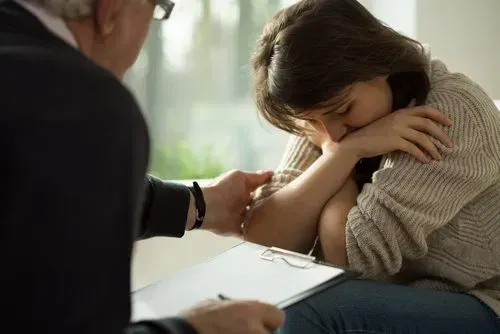Peer Relationships
in Lexington, Richmond & Frankfort KY
Do you or someone you know have challenges with peer relationships or in social situations? Are you a parent concerned for your child who has difficulty making or keeping friends, being social in various settings, or thinking of others with a social lens? Are you an adult, who often feels awkward in social situations and does not know how to interact effectively with others? If so, there are communication skills, appropriate interaction strategies, and therapeutic interventions to improve these challenges.
Signs and Symptoms
Peer relationships, whether adult or child, are influenced by reciprocity in the relationship. Reciprocity means matching kindness with kindness, angry or hurtful acts with angry or hurtful acts, or being able to decipher another person’s intentions with body language, communication, or actions of another and responding accordingly. Sometimes, these communication skills are overlooked or misinterpreted, which results in social challenges.
Executive Functioning is part of the brain that influences decision making, ability to pay attention, avoiding or doing the right or wrong thing, remembering details, and even forgetting social norms. Executive Functioning can we weakened by a mental health disorder like ADHD, depression, or brain or head trauma. The good news is that, even though it can be weakened, it can also be strengthened. Go to http://www.webmd.com/add-adhd/guide/executive-function
for more information on Executive Functioning.
Treatment
There are many strategies and skills to improve Executive Function and to improve Peer Relationships and Social Interactions. The following video illustrates strategies to improve executive functioning and improve social interactions with others http://wn.com/executive_functioning.
Social Thinking is an intervention and treatment that works to address the complexities of social relationships and peer interactions. Their mission http://www.socialthinking.com/
is to: Our mission is to provide practical frameworks, strategies and products to teach social problem solving, social emotional interpretation and social skills across schools, homes, communities and workplaces across the lifespan and around the globe.
Through role-playing exercises, games, peer groups, addressing the expected versus unexpected social norms, and creating a vocabulary of social expectations, Social Thinking concepts can be learned and implemented in daily life for both children and adults.
Ways to Get Help
If you or a loved one has difficulty forming or keeping friendships, has difficulty recognizing social expectations, and who may have difficulty reacting appropriately in a variety of social contexts (home, school, work) then there is help for you. Working alongside a qualified mental health professional can help strengthening Executive Functioning and improve peer relationships and social challenges.
Seeking treatment for Peer Interactions and Social Challenges is easy. Select a professional, we recommend a psychologist, LPCC or LCSW first, and have an assessment performed. Individual or Group Therapy (group therapy for children only) may be what will make the difference! Several therapists have been trained in the Social Thinking treatments and have many resources to utilize for treatment. If you need help, call us at 859-338-0466 or contact us
today!
New Client Info
Lexington, KY
Darby Creek Location
501 Darby Creek Road
Suite 11
Lexington KY, 40509
Phone:
859-338-0466
Fax:
859-294-0802
All Locations
LIST
MAP
- Darby Creek Lexington, KY 501 Darby Creek Road, Lexington, KY, United States
- Duval Street Location Lexington, KY 1092 Duval Street, Lexington, KY, United States
- Frankfort, KY 105 Diagnostic Dr, Frankfort, KY 40601, United States
- 1043 Center Dr, Richmond, KY 40475, United States 1043 Center Dr, Richmond, KY 40475, United States
Recent Posts
What is therapy?
Therapy is more long-term than counseling and focuses on a broader range of issues. The underlying principle is that a person's patterns of thinking and unconscious awareness affect the way that person interacts with the world. The goal is to uncover those patterns and become aware of their effect and then learn new, healthier ways to think and interact.








